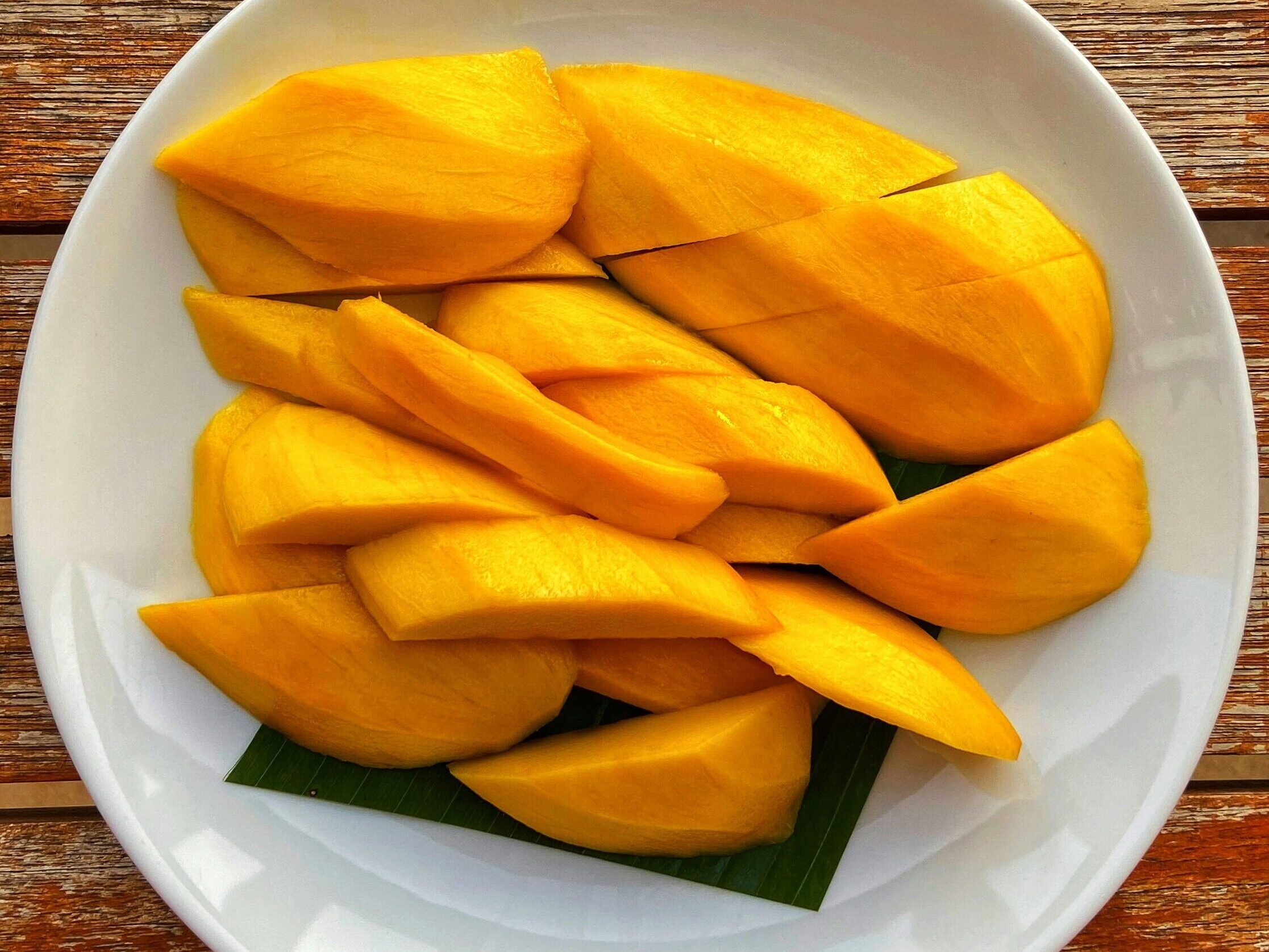Mangoes, scientifically known as Mangifera indica, are tropical fruits native to South Asia but are now cultivated in many tropical and subtropical regions worldwide. They belong to the Anacardiaceae family, which also includes cashews and pistachios. Mangoes are renowned for their sweet, juicy flesh and distinctive flavor, making them a beloved fruit in cuisines around the globe. Mohit Tandon from Burr Ridge suggested some of the Health Benefits of Mangoes :

Nutrient-Rich Superfood: Health Benefits of Mangoes
Mangoes are a powerhouse of essential nutrients, including vitamins A, C, E, and K, as well as B vitamins like folate, and minerals such as potassium, magnesium, and copper. These nutrients play crucial roles in supporting overall health and well-being. – Mohit Tandon Burr Ridge
Boosted Immune System: Health Benefits of Mangoes
Mangoes are particularly renowned for their high vitamin C content, which bolsters the immune system by enhancing the production of white blood cells, the body’s first line of defense against infections and illnesses.
Glowing Skin and Hair: Health Benefits of Mangoes
The abundance of vitamin A and beta-carotene in mangoes promotes healthy skin and hair. Vitamin A is essential for skin regeneration and repair, while beta-carotene contributes to a radiant complexion and strengthens hair follicles.
Improved Digestive Health: Health Benefits of Mangoes
Mangoes are packed with dietary fiber, which aids digestion, prevents constipation, and promotes a healthy gut microbiome. This fiber content supports regular bowel movements and reduces the risk of gastrointestinal disorders.
Heart Health Support: Health Benefits of Mangoes
Potassium and magnesium found in mangoes help regulate blood pressure and maintain heart health. These minerals contribute to vasodilation, reducing strain on the heart and lowering the risk of hypertension and cardiovascular diseases. – Mohit Tandon Burr Ridge
Enhanced Eye Health: Health Benefits of Mangoes
The high levels of vitamin A and antioxidants like zeaxanthin and lutein in mangoes promote eye health by protecting against age-related macular degeneration and cataracts. Regular consumption of mangoes may improve vision and maintain eye function.
Antioxidant Protection:
Mangoes are rich in antioxidants, including flavonoids, phenolic compounds, and beta-carotene, which neutralize free radicals and reduce oxidative stress. This antioxidant protection helps prevent cellular damage and lowers the risk of chronic diseases.– Mohit Tandon Burr Ridge
Weight Management Aid:
Despite their sweet taste, mangoes can aid in weight management when consumed in moderation. Their high fiber content promotes feelings of fullness, reduces appetite, and prevents overeating, making them a satisfying and nutritious snack.
Diabetes-Friendly Fruit:
Mangoes have a moderate glycemic index and may be suitable for individuals with diabetes when consumed as part of a balanced diet. The fiber and antioxidants in mangoes help regulate blood sugar levels and improve insulin sensitivity.
Bone Strength Support:
Mangoes contain vitamin K, which is essential for bone health as it helps regulate calcium absorption and bone mineralization. Regular consumption of mangoes may contribute to stronger bones and reduce the risk of osteoporosis.
Cancer Prevention Properties:
Mangoes contain phytochemicals like quercetin, isoquercitrin, astragalin, and fisetin, which exhibit anticancer properties. These compounds inhibit the growth of cancer cells, induce apoptosis, and suppress tumor formation, potentially lowering the risk of various cancers.– Mohit Tandon Burr Ridge
Stress Reduction:
Mangoes contain magnesium, a mineral known for its calming effect on the nervous system. Consuming mangoes may help reduce stress, anxiety, and insomnia by promoting relaxation and improving sleep quality.
Improved Cognitive Function:
The antioxidant compounds in mangoes protect brain cells from oxidative stress and inflammation, potentially reducing the risk of cognitive decline and neurodegenerative diseases like Alzheimer’s.
Athletic Performance Enhancement:
The potassium content in mangoes supports proper muscle function and electrolyte balance, making them an excellent choice for athletes and active individuals. Consuming mangoes post-exercise can aid in muscle recovery and hydration.– Mohit Tandon Burr Ridge
Anti-Inflammatory Effects:
Mangoes contain bioactive compounds with anti-inflammatory properties, such as quercetin, mangiferin, and gallic acid. These compounds help reduce inflammation in the body, alleviating symptoms of inflammatory conditions like arthritis and asthma.
Liver Health Maintenance:
The antioxidants and enzymes in mangoes support liver health by neutralizing toxins and promoting detoxification processes. Regular consumption of mangoes may protect against liver damage and improve liver function.
Alleviation of Anemia:
Mangoes are a good source of iron and vitamin C, which enhance iron absorption. Incorporating mangoes into the diet can help prevent iron deficiency anemia and promote healthy red blood cell production.
Anti-Aging Benefits:
Mangoes are rich in antioxidants that combat oxidative stress and premature aging. Regular consumption of mangoes may reduce the appearance of wrinkles, fine lines, and age spots, promoting a youthful complexion.
Pregnancy Support:
Mangoes are a nutritious addition to the diet during pregnancy due to their high vitamin and mineral content. Vitamin A in mangoes supports fetal development, while folate reduces the risk of neural tube defects.
Mood Enhancement:
Mangoes contain mood-boosting nutrients like vitamin B6, which supports serotonin production in the brain. Including mangoes in the diet may enhance mood, reduce symptoms of depression, and promote overall well-being.
Each of these paragraphs provides insight into the diverse health benefits of mangoes, showcasing their versatility as a nutritious and delicious fruit.
